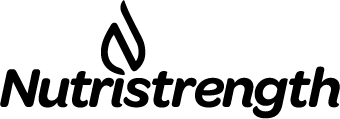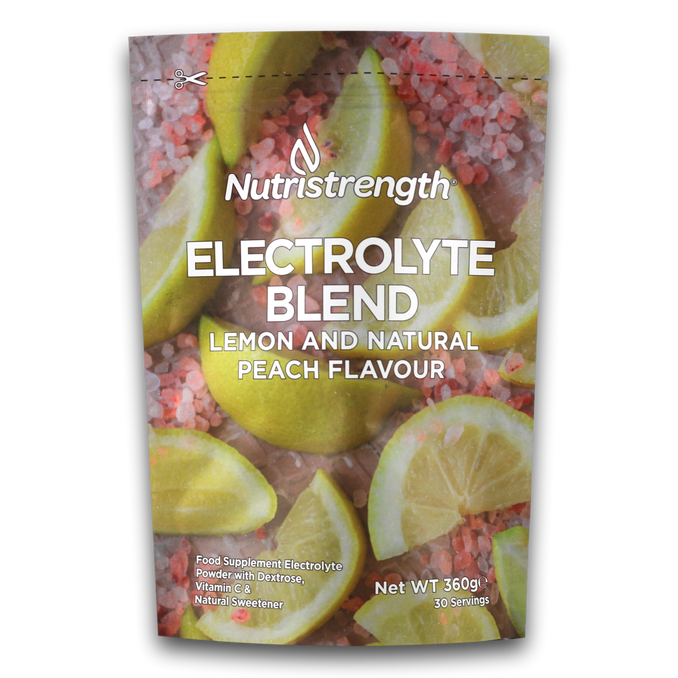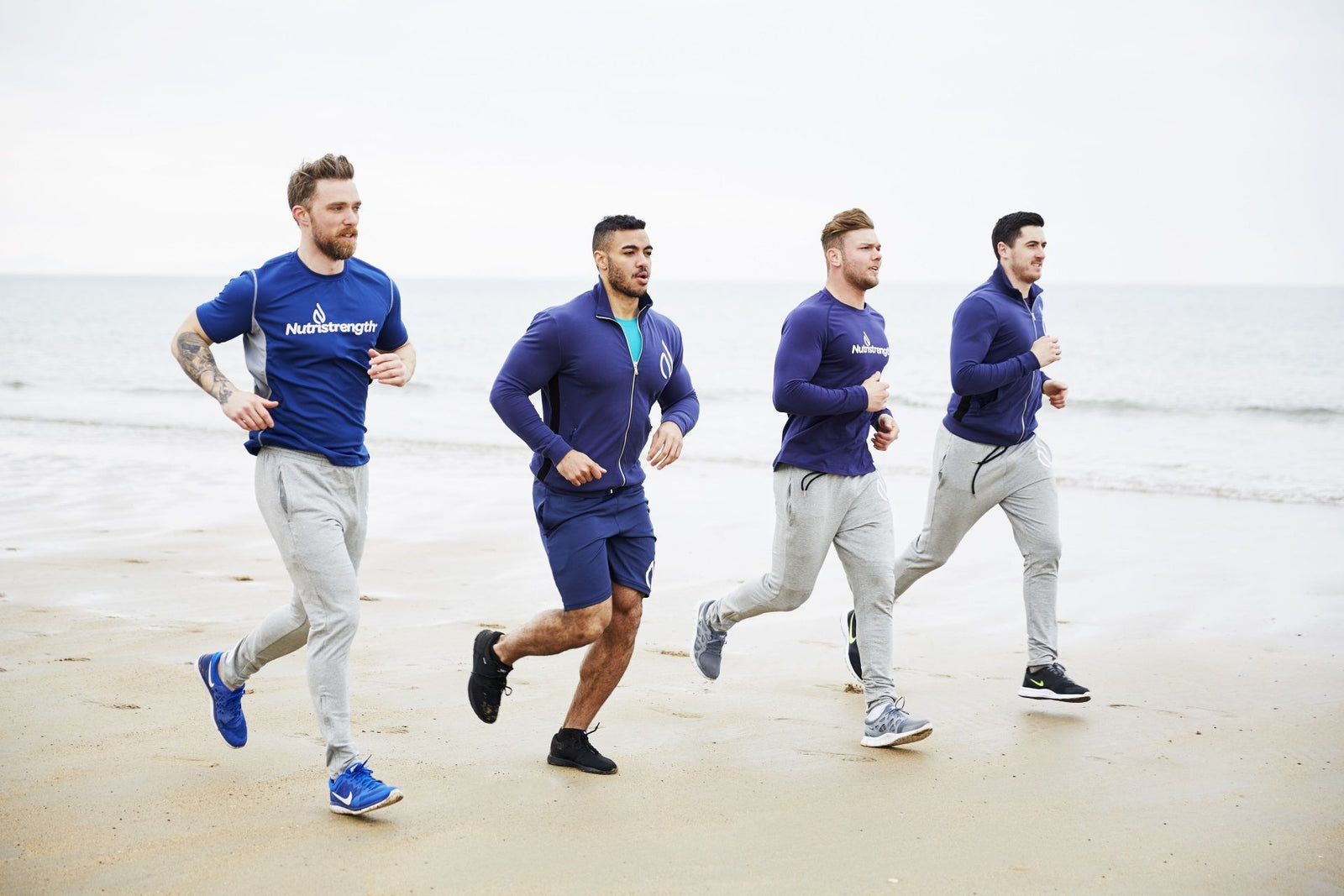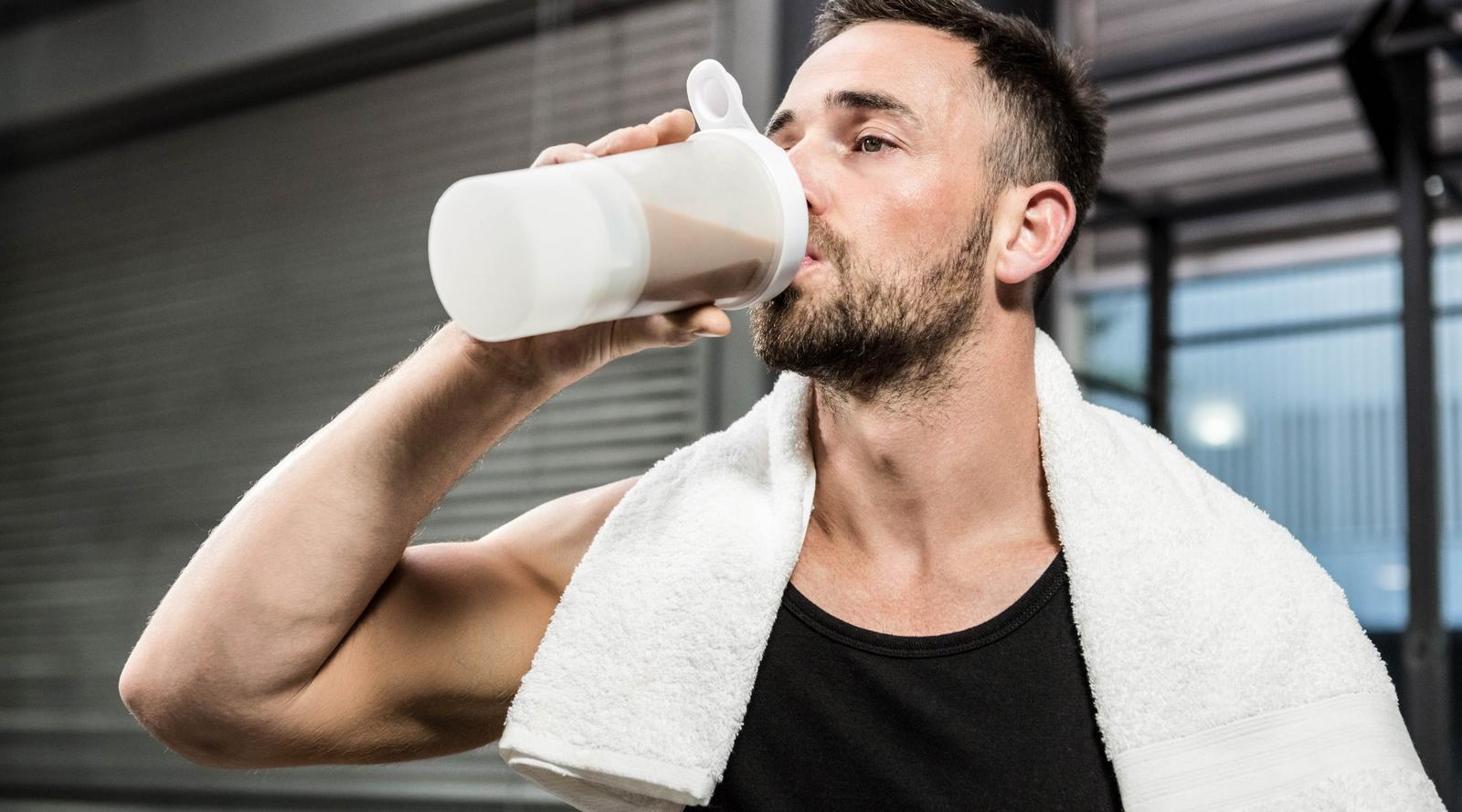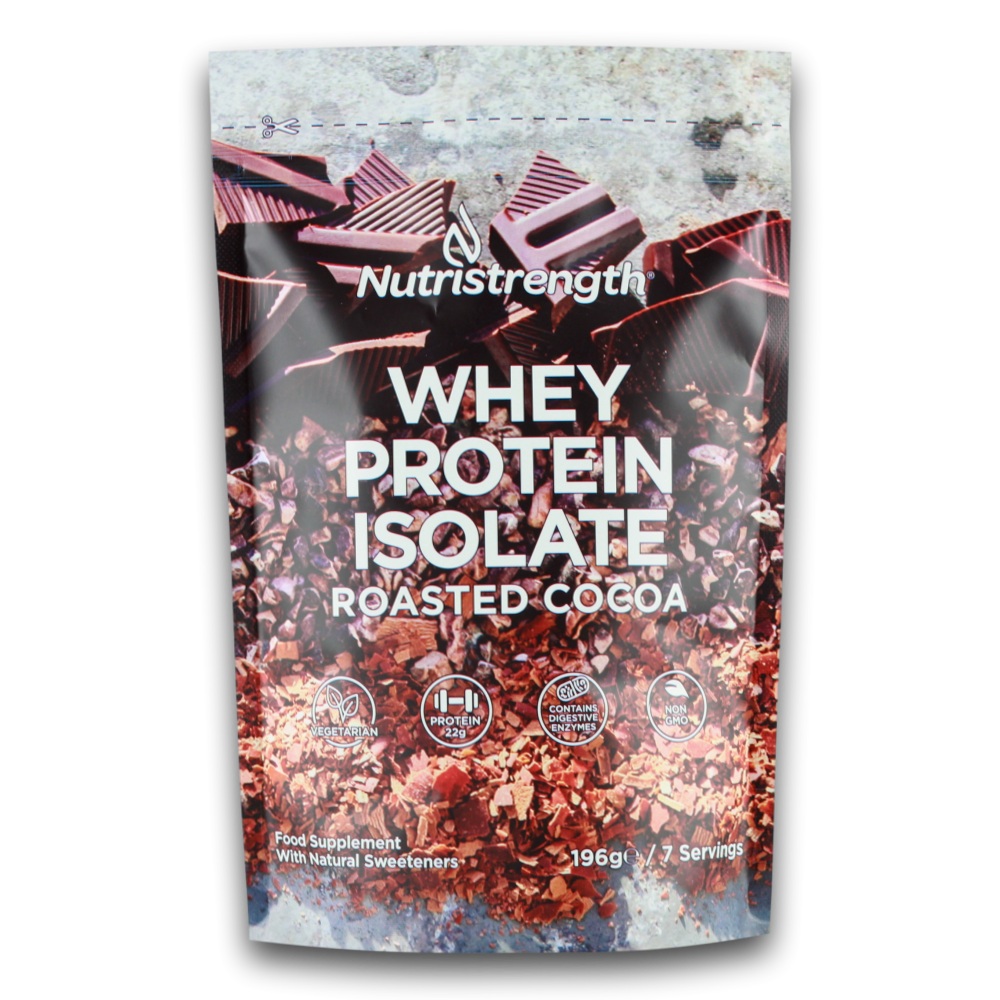Inspired by the Great North Run to take up jogging? Or in training for your first big running event? As a lifestyle nutrition brand, we know that running can be a great form of fitness and, if you’re taking the plunge and upping your mileage for a long distance race, there’s a lot of thought and effort that goes into the preparation.
Whether tarmac or treadmill is your preference, you have to make sure you’re eating the right foods and getting the right nutrition into your diet to support your lifestyle, especially when you’re training for a long distance event. Here we speak to the experts to get their view.
Plan for a runner’s diet
We all know that protein helps contribute to growth and maintenance of muscle mass, and how important those leg muscles are in long distance training, so make sure you’re getting the right level of nutrients to support your activity.
David Castle, Editorial Director at Men’s Running knows all too well the effects of training for a big race, here he shares his experience and insight.
“Just as a Formula One driver wouldn’t put red diesel in their car, long distance runners shouldn’t try to fuel for their runs on a diet of pizza and chips. I’m a firm believer in everything in moderation. So, while I would never dictate that someone could or couldn’t eat something, at the same time the best long distance runners know the importance of eating the right foods. So that means cutting down on processed foods and eating plenty of low GI carbs like brown rice, whole wheat pasta, sweet potato, pulses and fruits and vegetables along with good sources of protein like chicken and tuna.”
“Post-race, most nutritionists agree there is a 20-minute window of opportunity to get down some replacement fuel. The best thing is protein for tired muscles. However, it is not always possible to get your hands on something suitable or equally it could be the furthest thing from your mind to tuck into a grilled chicken breast fillet. I’ve found the best thing is to have a protein drink handy that you can slowly sip to make sure your body is getting some replacement fuel. Also drink plenty of water and try to replace the electrolytes lost through sweat. There are plenty of products on the market to make this easy.”
“Running is not a complex sport. The more time you put in, the more you get out and the greater the benefits to your body."
"So, it makes sense to have a training plan that is realistic but that gets you to the start line in as good a shape as possible. I would suggest the minimum you could think of would be a 12-week plan for a marathon, but that really is the minimum and that’s for someone who has a good general fitness base already. I would say that 20 weeks is an ideal time to get ready, using a tiered approach where you make mileage gains and drop back to recover for a week. It’s as much about how your body deals with the demands of the training as it is about the training itself.”
Whatever your motivation, do what feels right for you
Not all runners are born runners. Des Pratt started with parkrun in a bid for a healthier lifestyle and has since gone on to become an ultra marathon runner. Here he shares his experience.
“My main reason for becoming a runner was to be my regular go to exercise alongside my healthy eating plan to lose weight. It obviously worked, as I ended up losing and maintaining a weight loss of over 9 stone!
"As I got more into my running it became a part of my everyday life."
"I’m not ashamed to admit that I suffer with quite severe depression and anxiety (have been taking medication and attending therapy for some time now), but running is the escape that my mind needs. I’m very target driven and running satisfies that craving, from trying to beat my parkrun PB every week to smashing a marathon and 100km ultra in the past 12 months. Running is my escape, my solitude, my sanctuary.
I have changed my eating patterns and what I eat as I have progressed through the distances and began to run further and for longer periods of time. For parkrun and 10km races for example, I will take on a banana, porridge oats with honey or jam, yoghurt and an energy bar. Alongside that I will make sure that I drink plenty of water whilst being aware to not over hydrate before and during the run. Moving up to marathon and ultra distances, I will always ensure that I carb load the few days leading up to race, plenty of pasta, potatoes, bread, rice, chicken, fish, veg and red meat. My usual pre-race routine is topped up as I’m running with shot blocks, jelly sweets and pork pie! I don’t use gels as they don’t agree with my stomach and from experience I had a bad reaction mid race when I first tried gels.
Pre-race I would eat whatever settles well with you. Don’t take food on board and make yourself feel ill and bloated, if you think it’s what you need to do. Always stick to a regular routine that’s what your body is used too and can deal with. Personally, I wouldn’t advise running on an empty stomach for a 1/2 marathon distance upwards, at the very least take on water or a drink containing electrolytes. Post-race I would always advise replacing fluids that you have lost as soon as possible. Food-wise, I try to eat good, hearty filling meals that replenish your energy and satisfy the cravings you will have for pushing yourself to the max.”
Practice makes perfect
Sports writer, editor and trail runner Isaac Williams has seen it all. Here he gives us his view on how best to train for a big, long-distance event.
“The old adage 'practice makes perfect' rings true for race-day nutrition. Weeks or even months before the race, you should have a clear idea of the type of nutrition – be it gels, bars or more natural food – that works for you. There is no one-size-fits-all approach to running nutrition – it's very subjective.
"Experiment with different products in training but don't, whatever you do, experiment on race day."
"While nutrition is largely subjective, there are a few general rules to follow. You've probably heard of the popular nutrition strategy of 'carb-loading'. That's largely because it works: by eating a carbohydrate-heavy meal the day before your race, you ensure your body has plenty of readily available glycogen – sugars broken down from carbohydrate – to tap into for energy. Pasta is a good option, but there's no need to gorge yourself on a mountain of the stuff; a regular sized portion, with some veg and a little protein, will work just fine.
Hydration is also essential. The day before your race, make sure you drink plenty of water. On the day itself, drink as normal but don't overdo it – the last thing you want is a mid-run loo stop.
In terms of post-run recovery, ensuring you take on board a good amount of protein (10-20g) after any run – whether it's an easy jog or a high-intensity race – will give your body the tools it needs to begin repair work on damaged muscle fibres. Eggs on wholegrain toast is a great option, providing an ideal source of protein and complex carbohydrate to help replenish glycogen stores and prepare your body for your next training session.”
Have a long distance running training plan in place
Shaun Dixon of Let’s Get Running has been creating long distance running training plans for his clients since 2011, so he knows a thing or two about getting the best out people. Here he gives us his advice.
“Nutrition is a vital part of any runner’s preparation. If you don't fuel yourself appropriately you're doomed to fail. Successful runners pay special attention to the quality and timing of their diet in order to get the most out of their training- periodising their eating to fuel their bodies before big workouts and ensuring the body is replenished and repaired on easier days.
There are a variety of factors that would influence my post-race recovery- from the duration of the run, to the weather and terrain on the day. Having said that, I would always aim to consume liquids and protein within 30mins of finishing an event. I am a big fan of milk but there are a variety of other protein-based recovery drinks available. Within 90mins it is then imperative to get a good meal- with a combination of carbohydrates and protein to help replenish glycogen stores and aid repair of muscles. I tend to opt for something simple- brown rice, salmon and leafy greens.
"How early should you start preparing for a long distance race? It all depends on your running experience, and if you're new to running the longer the better!"
"For those who are already confident runners I would recommend setting aside 12-16 weeks to start focusing on an event like the Marathon but for those who are new to running I would recommend 20 weeks+. You can do it in less, but if you want to enjoy it, and not cut corners or risk injury, I would devote some time to it!”
Enjoy it!
Running can be hard when you first start out. It uses muscles you’re not used to and, put simply, it hurts. But when you get past that point many people find themselves wanting to go further. And further.
We hope this collection of training tips inspires you to carry on enjoying your run, whatever the distance.
Have your own tips or words of wisdom? Share them with us on Twitter, Facebook and Instagram and take us with you on your run.
